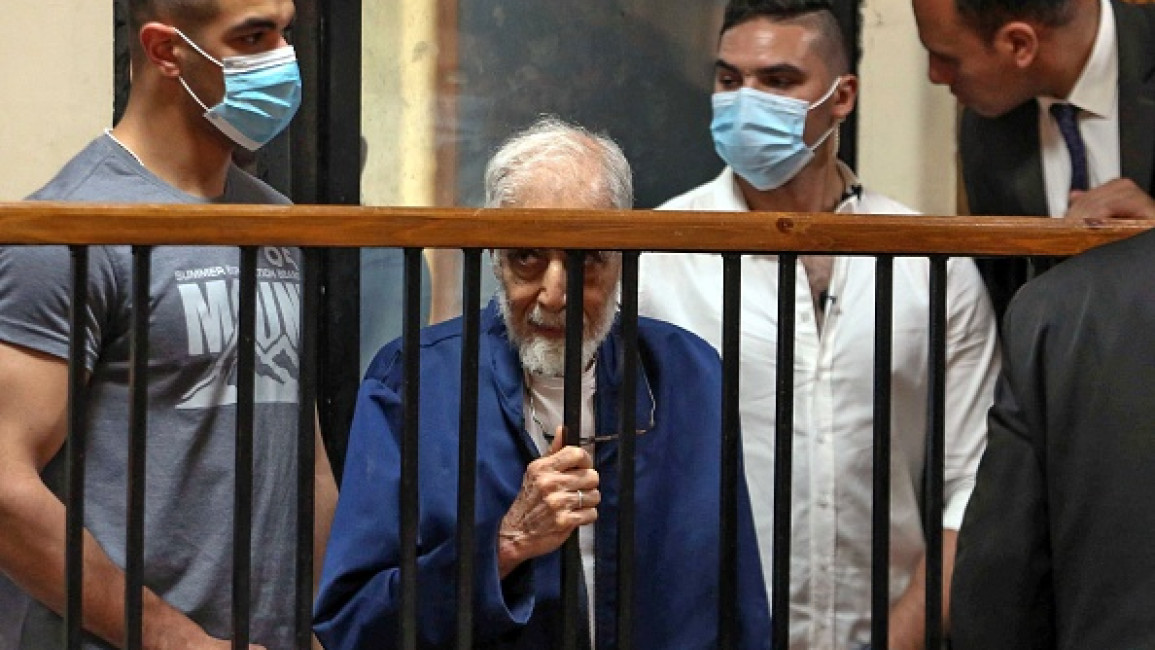Egypt court sentences 2 aged Islamist leaders to 15 years
An Egyptian court on Sunday sentenced two aged Islamist leaders to 15 years in prison for 'disseminating false news' and 'inciting against state institutions'.
Along with Abdel-Monaem Abul Fetouh, a high-profile former presidential candidate and head of the Islamist 'Strong Egypt' party, and Mahmoud Ezzat, the acting leader of the Muslim Brotherhood group, the Supreme State Security Court gave seven defendants 15-year sentences on the same charges.
The court in Cairo also sentenced Mohamed el-Kassas, the deputy head of the Strong Egypt party, and another activist, Moaz el-Sharqawi, to 10 years in prison on similar charges including membership of an outlawed group, the Muslim Brotherhood - which Egypt designated as a terrorist organization in 2013.
The court, which tackles terror-related cases, sentenced 14 others to life in prison.
Abul Fetouh, 70, is a former senior Brotherhood leader who was sacked from the group in 2011 when decided run in Egypt’s presidential elections. He and el-Kassas were detained in February 2018, after voicing criticism of the government of President Abdel Fattah El-Sissi.
Pro-government media in Egypt have insisted Abul Fetouh’s true sympathies are still with the Brotherhood.
Ezzat, a 77-year-old mysterious Muslim Brotherhood figure, was detained in August 2020. He was at large since the military removed Egypt’s first democratically elected president, a Brotherhood leader Mohamed Morsi. Morsi’s short-lived rule proved divisive and provoked mass protests nationwide.
Ezzat was convicted of several terror-related crimes and sentenced twice to death in absentia in two separate cases. He has been retried in once case and sentenced to life in prison in April last year.
Abul Fetouh, Ezzat and el-Kassas were added to the country’s terror list.
Rights groups have repeatedly criticized such mass sentencings in Egypt and called on authorities to ensure fair trials.
The groups, including Human Rights Watch and Amnesty International, say the arrests and trials of the likes of Abul Fetouh and el-Kassas are part of a government crackdown of on dissent that targeted not only Islamist political opponents but also pro-democracy activists, journalists and online critics.



